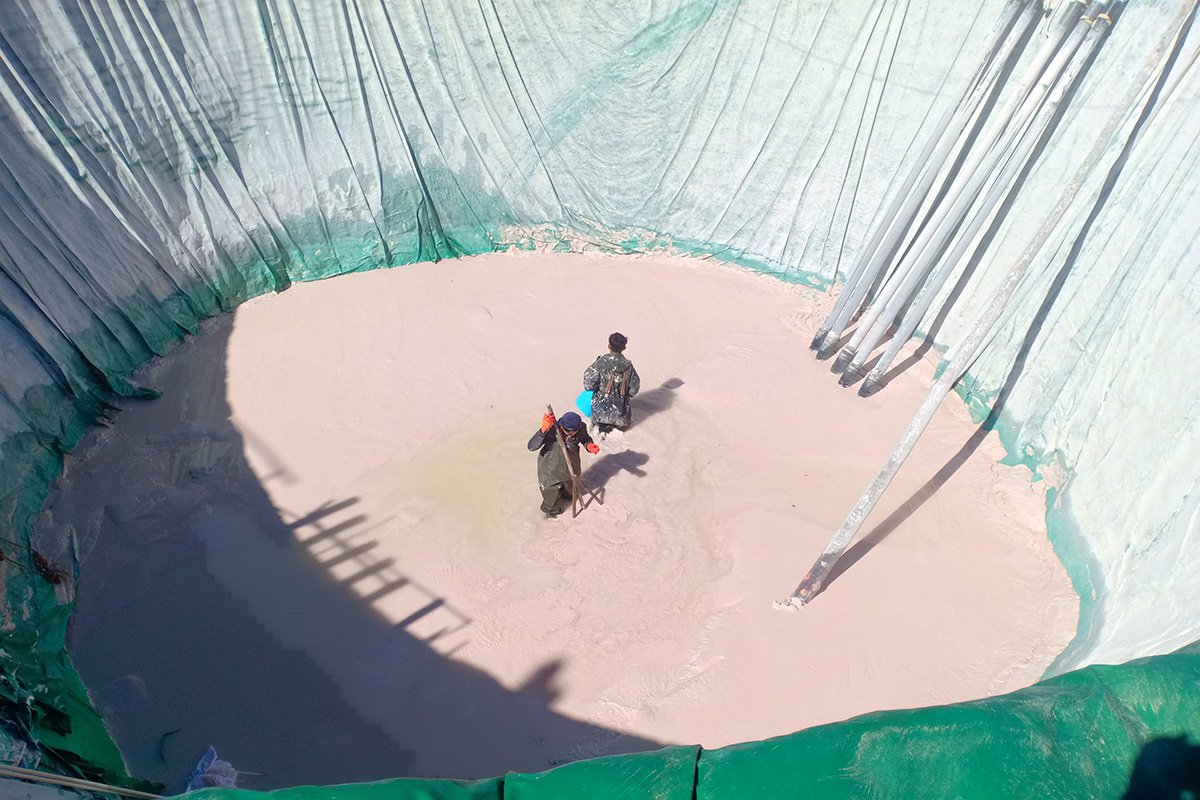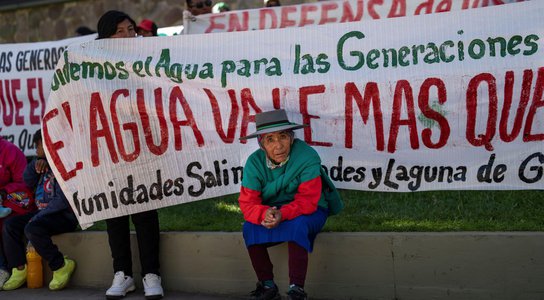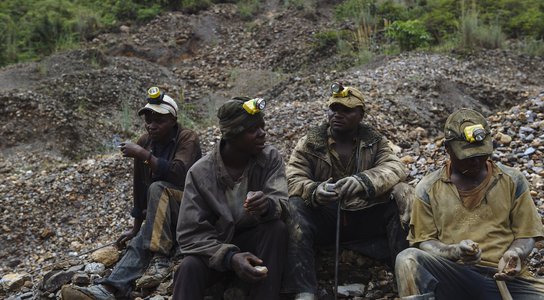Efforts to address the climate emergency are fueling a booming demand for renewable energy technology: electric vehicle batteries, wind turbines and solar panels. In turn this demand means a greater need for critical minerals such as lithium, cobalt and ‘rare earth’ metals. We're building on our decades of experience of campaigning on the mining sector to highlight some of the risks for communities living in mineral-producing countries in the Global South.

Over the last year our natural resource governance campaign has had some big wins in exposing the role that mining can play in human rights abuses and conflict. Beyond exposing these activities, our work has provoked real change and had a positive impact on the industries, communities and environments affected.
Tackling conflict minerals
Earlier this year we published The ITSCI Laundromat, a major investigation into the serious failures of the ITSCI due diligence scheme. ITSCI is an industry-led initiative that is supposed to prevent conflict-financing and human rights abuses linked with tin, tantalum and tungsten (“3T minerals”) in Democratic Republic of Congo.
The investigation found evidence of large amounts of minerals connected to armed conflict and child labour, as well as smuggled or trafficked minerals being laundered through ITSCI’s supply chains. The ground-breaking report made waves amongst downstream industry players and other stakeholders working on conflict minerals.
Following our exposure of ITSCI’s failings, the Responsible Minerals Initiative (RMI), the most widely used industry scheme for 3T smelters decided* to remove ITSCI from its list of approved upstream assurance mechanisms. The decision sends a strong signal that industry has serious concerns with the ITSCI scheme, a signal which we hope will lead to reform.
Natural Resources in Myanmar
Our Poisoned Mountains report on Myanmar’s toxic rare earth mining industry used cutting-edge analysis of satellite imagery to document a massive expansion of illegal rare earth mines in northern Myanmar. This boom has led to the poisoning of surrounding land and waterways, harming local communities and wildlife. Mines are funding military-linked militias.
The investigation sparked debate amongst industry bodies and Global Witness briefed officials in the US State Department, UK Foreign Office and China’s Ministry of Ecology and Environment on the investigation. An ethics advisory board to a major global pension fund launched a review of a Chinese manufacturer in the rare earths supply chain.
Our research prompted multiple companies to re-examine the supply chain of their battery products and has given activist investor groups and environmental organizations new information with which to lobby companies involved in the rare earths supply chain.
At the same time, we have advocated for sanctions to be imposed on those profiting from damaging natural resource extraction and providing material support to the military junta in Myanmar. Our submissions and advocacy to state bodies have helped put in place sanctions on Myanmar entities by the EU, the UK and the US.
This includes sanctioning Myanmar’s junta and its state-owned oil company, Myanmar Oil and Gas Enterprise (MOGE) in February 2022. MOGE has been a core target for Global Witness and our continued advocacy heavily contributed to sanctions being imposed on it by the EU.
These sanctions had an immediate impact when the bank processing Euro transactions for one gas field completely suspended payments to the junta, directly cutting off one of their revenue streams.
We’ve also been lobbying for the passage of the US BURMA Act legislation through Congress, working to ensure it is not watered down. The bill has now passed the House of Representatives and we will continue lobbying for its implementation in the new year.
The bill authorizes further sanctions and hundreds of millions of dollars in financial support for Myanmar civil society and humanitarian aid. This landmark legislation will also commit the US to supporting justice initiatives that seek to hold the junta to account for its crimes against the people of Myanmar including the Rohingya.
Working with Chinese mining industry bodies
This year we have continued to work closely with The China Chamber of Commerce of Metals, Minerals and Chemicals Importers & Exporters (CCCMC) and the Responsible Critical Mineral Initiative - previously called the Responsible Cobalt Initiative (RCI). We participated in the development of the RCI’s grievance mechanism – the first of its kind – covering all minerals across the mining industry. The grievance mechanism will be a way for affected communities and NGOs to raise concerns about negative impacts of Chinese overseas mining investments.
Looking forward
In 2023 we will keep campaigning for a fair deal for the Global South countries supplying the minerals that are so essential for the global transition to renewable energy. We will expand our work across Africa, deepening partnerships with activists who are holding their governments and companies to account and working to protect communities and the environment form the worst impacts of mining. And we will build on our relationships with industry bodies and policy makers in China, the EU and elsewhere to push for stronger global standards that can help to guarantee a just energy transition.
* ITSCI states its ‘removal’ from RMI was because ITSCI decided not to apply for recognition and refers to RMI’s statement 31 October 2022.


